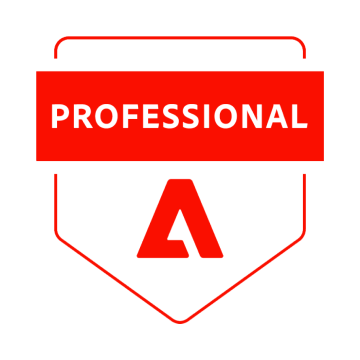Manufacturing SEO Services
If you sell complex systems to utilities and industrial buyers, your website should attract engineers, procurement, and operations teams at the exact moment they search for specs, standards, and RFQ terms. We turn that buying behavior into an industrial SEO plan built around technical foundations (crawlable spec sheets, clean faceted navigation, correct product data), search-driven content for evaluators, and authority signals that move you onto shortlists — practical SEO for manufacturing and energy with revenue in mind.

Our Offerings
Technical SEO & Site Architecture
We fix crawl paths, internal linking, and pagination so large catalogs are indexable without duplication. That includes parameter handling, canonical rules for variants, and faceted navigation that doesn’t create index bloat. Categories are mapped to real search demand and rebuilt as hubs that connect applications, datasheets, and compatible parts.
Industrial Keyword Research & Intent Mapping
We mine RFQ language, maintenance logs, and competitor specs to group queries by job-to-be-done — selection, comparison, compliance, troubleshooting. The output is a query-to-page map with priority, difficulty, and required content blocks, focused on how engineers and procurement search in energy and manufacturing.
Product Data SEO (PIM/ERP-Driven)
We expose attributes already in your PIM/ERP — ratings, certifications, dimensions—on-page in crawlable tables, JSON-LD Product markup, and comparison grids. This boosts rich results, filter indexing, and relevance for spec-driven searches.
Content for Engineers: Specs, Notes & Comparisons
We convert PDFs and tribal knowledge into web-first assets: selection guides, ISO/IEC summaries, “spec vs. spec” comparisons, lifecycle calculators. Each page includes decision enablers — operating ranges, tolerances, failure modes, drawings — and links to BOM tools or part match forms.
SEO for RFQ & Lead Capture
We connect technical pages to low-friction actions: BOM upload, configurators, distributor lookups, and sample requests. Form logic collects use case, industry, and standards so sales can route qualified leads quickly.
Analytics & Pipeline Attribution
We tie organic journeys to CRM stages (MQL → SQL → opportunity) and report which topics and specs drive RFQs and demos. Forecasts translate ranking gains into expected RFQ volume and pipeline impact, so budgets track business outcomes.
How We Bring Value To Your Business
Industrial SEO only matters if it supports how capital projects are evaluated and purchased. Our focus is on the steps that move technical buyers from early research to RFQ: clearer product discovery, stronger technical content, and pathways that surface qualification data your sales team needs.
1
Shorter Paths from Search to Spec
When engineers and procurement teams land on your site, they need fast access to technical detail. We tighten architecture, improve filtering, and present specifications and drawings where users expect them. This removes navigation friction and keeps buyers engaged instead of bouncing to competing catalogs.
2
More Qualified RFQs
Not every visit needs to convert. We structure calls-to-action around how industrial buyers move—sample requests, part-match tools, BOM upload, and distributor lookups. These actions collect data that helps your sales team respond faster and with better context, turning anonymous visitors into project conversations.
3
Stronger Mid-Funnel Influence
Most SEO agencies stop at blog posts. We focus on the content that shapes purchasing: comparisons, failure modes, certifications, operating envelopes, and maintenance guidance. These assets help evaluators justify choices internally and bring your offering into discussion before pricing enters the picture.
4
Better Use of Existing Product Data
Your PIM or ERP already stores the details that matter — ratings, compliance, dimensions. We expose it cleanly on-page and in structured data so search engines understand what you sell and buyers can filter efficiently. This increases visibility across product families and similar part searches.
5
Credibility With Decision-Makers
Manufacturing and energy buyers want proof that a partner understands real operational constraints. We help technical SMEs publish practical notes—commissioning detail, compatibility guidance, and application insight—showing hands-on expertise without marketing fluff. This strengthens trust during long evaluation cycles.
6
Clearer View of SEO’s Business Impact
We connect organic journeys to CRM outcomes so you can see which product pages and topics feed RFQs and pipeline. This reports on practical impact — what helps land conversations and opportunities — so teams can prioritize SEO efforts that align with revenue goals.
Challenges We Commonly Solve
Manufacturing and energy companies often have deep technical knowledge, but their websites make it hard for buyers to find relevant parts, specs, and qualification details. We help remove those friction points so evaluation cycles move faster and more conversations reach your sales team.
Improve product visibility.
Why Choose WiserBrand
Energy and manufacturing companies choose partners who understand procurement cycles, long sales timelines, and the technical depth buyers expect. Our work focuses on practical gains instead of broad marketing language, helping you create content and structure that supports real evaluation and RFQ activity.
1
We Know How Technical Buyers Search
Engineers, plant managers, and procurement teams use precise language — ratings, compliance, applications, part families. We build SEO plans around that behavior, using RFQ terms, spec-based modifiers, and comparison intent to match how teams research and shortlist vendors.
2
We Work With Your Existing Data & Experts
Much of the content you need already exists: PIM attributes, ERP fields, drawings, SME notes, commissioning checklists. We help extract and shape it into pages, calculators, and guides buyers can use without calling sales. This reduces internal content effort and accelerates time to value.
3
We Align SEO With Pipeline
We measure SEO by how often it influences RFQs, demos, and proposal activity. Reporting connects organic channels to CRM stages, helping you invest in the content that supports real opportunities—not just traffic.
Cooperation Models
Different teams have different needs. Some want hands-on execution, others want strategic guidance for internal marketing and product groups. We offer flexible engagement models based on how you prefer to run SEO across your manufacturing portfolio.
A focused engagement built around a defined objective — SEO audit, catalog restructuring, migration support, or content program setup. This is a good fit if you need targeted help to fix architecture, map keywords to SKUs, or launch new product lines without losing visibility.
A continuous program that manages technical SEO, content development, and reporting. We meet regularly with product, sales, and marketing teams to evolve priority topics, support launches, and monitor how organic activity feeds RFQs and opportunities.
You keep execution in-house while we guide strategy. We help with planning, technical oversight, content frameworks, and analytics so your team can move faster while staying aligned with pipeline goals. This works well for manufacturers with internal writers or product experts who need direction.
Our Experts Team Up With Major Players
Partnering with forward-thinking companies, we deliver digital solutions that empower businesses to reach new heights.
Our Approach
Manufacturing SEO works best when it reflects how your products are specified, compared, and purchased. Our process focuses on uncovering the language engineers use, structuring product data for search, and building content that supports mid-funnel evaluation and RFQs.
Discovery & Market Alignment
We begin by reviewing your catalog structure, PIM/ERP data, existing content, and competitive landscape. Conversations with product and sales teams help us understand real buying triggers — certifications, performance ranges, industry standards, and common objections. This shapes priority themes and content depth.
Technical Foundation & Architecture
Next, we address crawlability, page templates, variant logic, and internal linking. We clean URL parameters, update canonical rules, and restructure categories around search behavior and product relationships. The goal is to make every spec, variant, and compatible component easy to find.
Content & Product Data Development
We convert internal knowledge — spec sheets, drawings, field notes — into usable web assets. Comparison pages, application guides, and compliance summaries help buyers evaluate without needing a sales call. Product attributes are surfaced in tables and schema to support accurate indexing.
Conversion & RFQ Enablement
We align page layouts and calls-to-action with how engineers prefer to take next steps. Tools like BOM upload, part matching, and sample requests collect qualification data that helps route leads to the right specialist. Navigation guides users toward actionable paths during research.
Measurement & Iteration
We connect organic journeys to CRM outcomes to understand which pages influence qualification and proposal activity. Insights guide ongoing updates to content clusters, architecture, and product data. This keeps SEO work aligned with revenue-related opportunities.
Case Studies
Our case studies highlight the outcomes we’ve delivered and the approaches that made them possible.
Manufacturing SEO Services FAQ
Industrial SEO prioritizes specification-driven queries, product data depth, and content for engineers and procurement teams. It focuses on helping buyers evaluate components, compare options, and move toward RFQs.
Yes. We organize families, clean URLs, and surface attributes so search engines and buyers can understand options without confusion or duplication.
We interview internal experts, review existing documents, and convert notes, drawings, and spec sheets into usable web content with minimal disruption.
Yes. Our approach supports mid-funnel research and adds clear actions—BOM upload, part match, sample requests—so qualified users can take the next step.
We plan redirects, schema, and architecture before launch to protect visibility and ranking during CMS/PIM changes.























